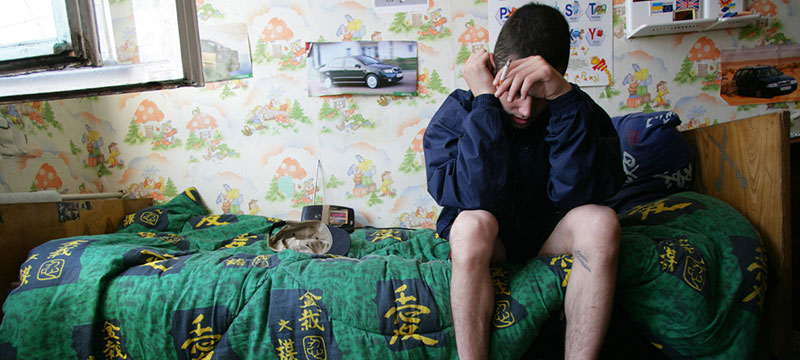 Drug Criminalization
Drug Criminalization UNAIDS upholds decriminalization, access to services, on International Drug Users’ Day
New York: People who use drugs should not be criminalized, the UN agency leading the global fight to stamp out HIV and AIDS (UNAIDS) said on Monday, in calling for greater funding for community-led harm reduction programmes.
In a statment to mark International Drug Users’ Day, UNAIDS said action is needed to address the negative effect criminalization has on HIV, viral hepatitis and other health issues.
The day, commemorated annually on 1 November, affirms the rights of this population.
“UNAIDS calls for the full involvement of communities of people who use drugs in achieving legal reform aimed at decriminalization and in the organization of harm reduction programmes at the country level. This will help us to end inequalities and end AIDS,” said Winnie Byanyima, the agency’s Executive Director.
At high risk
UNAIDS underlined its commitment to human rights and to supporting countries as they strive towards decriminalization of drug possession and full implementation of harm reduction programmes.
Although people who use and inject drugs are among the groups at highest risk of acquiring HIV, they remain marginalized and often blocked from accessing health and social services.
Last year, nine per cent of all new HIV infections were among people who inject drugs. Outside of sub-Saharan Africa, the figure rises to 20 per cent.
And while women comprise less than 30 per cent of people who use drugs, they are more likely to be living with HIV than their male counterparts.
Benefits to health
The UN system promotes harm reduction services and decriminalization of personal possession of drugs, UNAIDS said.
These policies do not increase the number of people with drug dependency, but instead provide substantial public and personal health benefits.
Timely introduction and full-scale implementation of accessible harm reduction programmes can prevent HIV infections, as well as many cases of viral hepatitis B and C, tuberculosis, and drug overdose, according to the agency.
However, less than one per cent of people who inject drugs live in countries with UN-recommended levels of coverage of needles, syringes and opioid substitution therapy. Meanwhile, the funding gap for harm reduction in low and middle-income countries is a “dismal” 95 per cent.
Impediments to access
Even where harm reduction programmes are available, they might not necessarily be accessible, UNAIDS added.
Criminalization of drug use and harsh punishments, such as incarceration, high fines or removal of children from their parents, are just some of the impediments.
“Women who use drugs face higher rates of conviction and incarceration than men who use drugs, contributing to the increased levels of stigma and discrimination they face in healthcare settings,” the agency said.
“In effect, criminalization of drug use and possession for personal use significantly and negatively impact the realization of the right to health.”
Action needed now
This year, UN Member States set targets on decriminalization of drug possession for personal use, and on elimination of stigma and discrimination against those who use drugs and other key populations.
The targets have a deadline of 2025 and include ensuring that 90 per cent of people who inject drugs have access to harm reduction programmes that are linked to hepatitis C, HIV and mental health services.
However, to reach them, “strategic actions at the country level need to start today”, said UNAIDS.
Support Our Journalism
We cannot do without you.. your contribution supports unbiased journalism
IBNS is not driven by any ism- not wokeism, not racism, not skewed secularism, not hyper right-wing or left liberal ideals, nor by any hardline religious beliefs or hyper nationalism. We want to serve you good old objective news, as they are. We do not judge or preach. We let people decide for themselves. We only try to present factual and well-sourced news.







